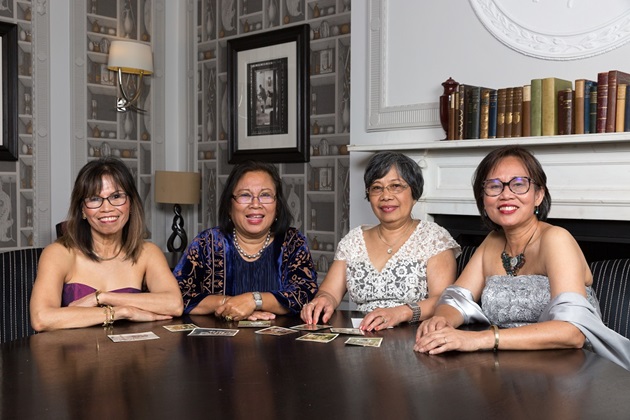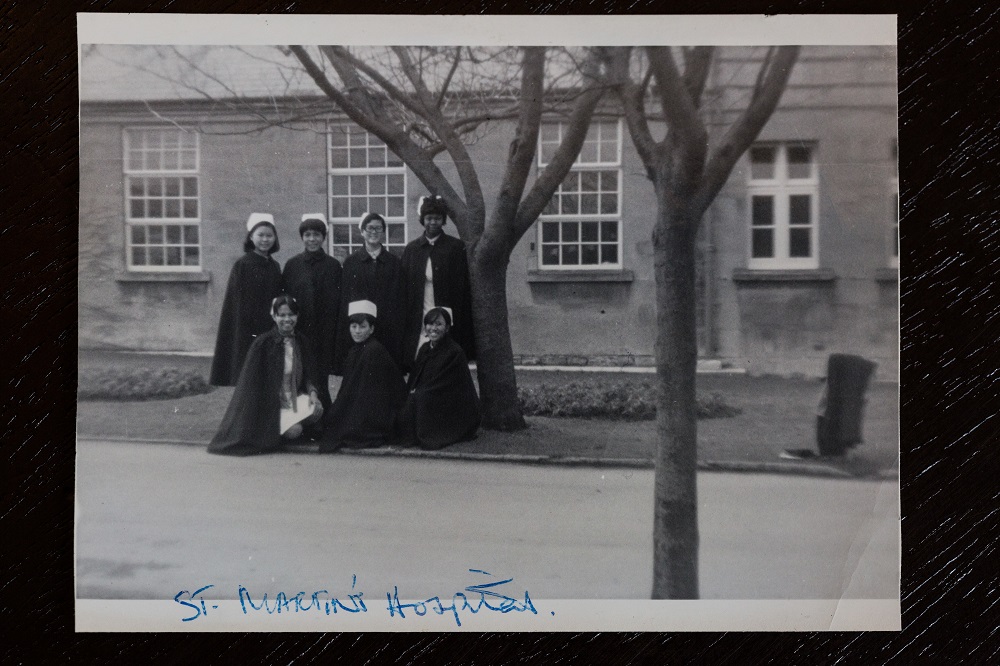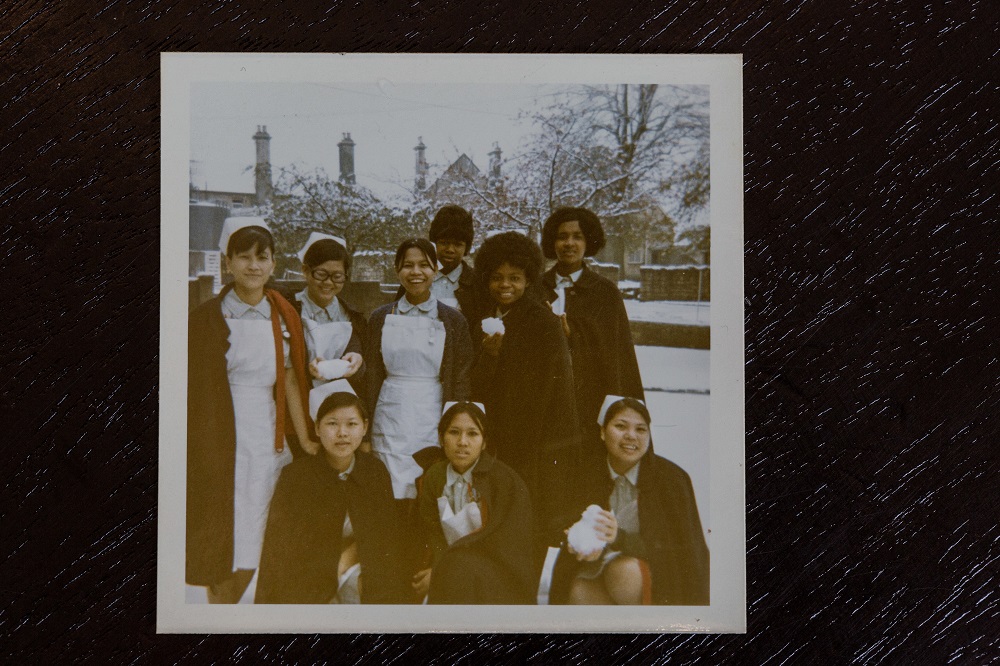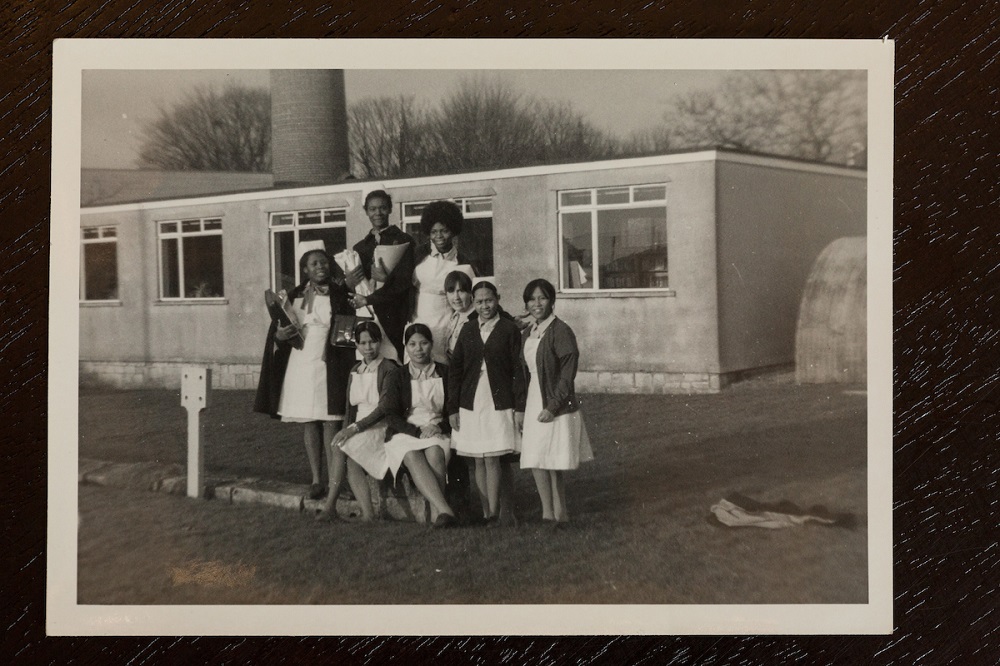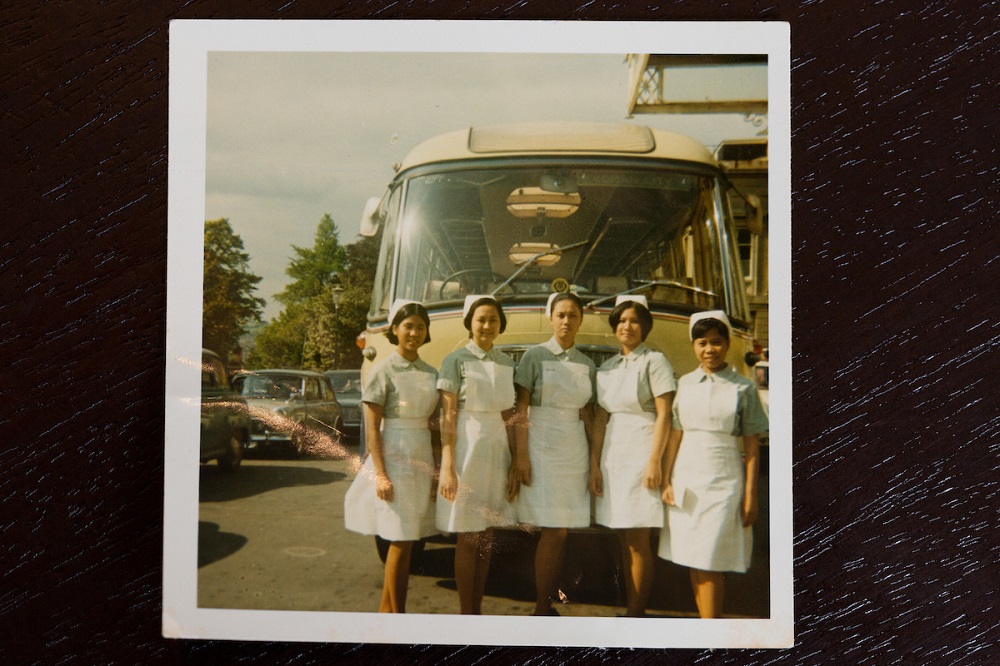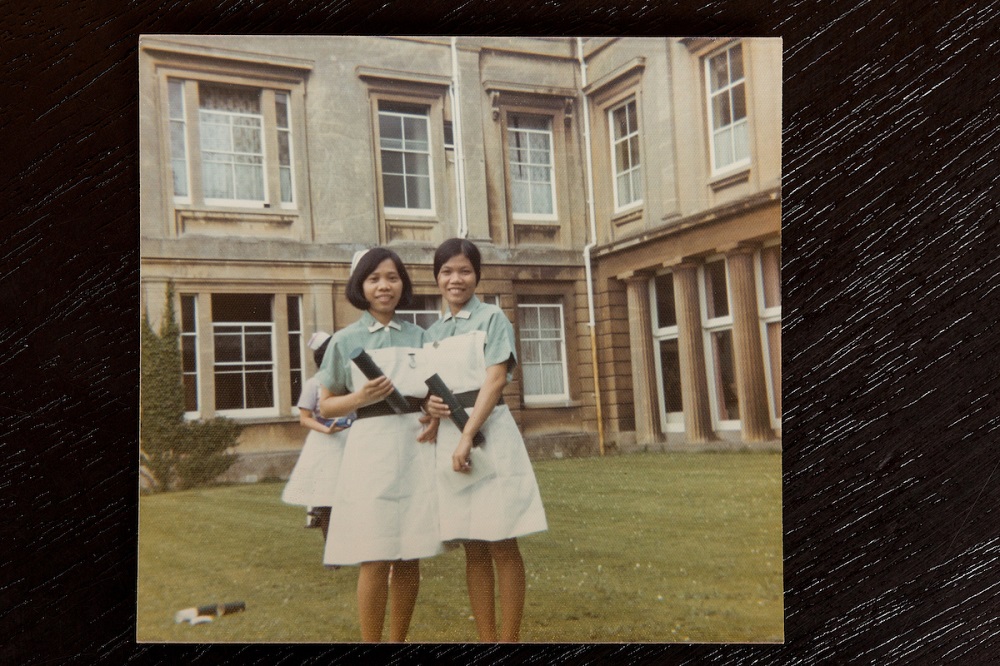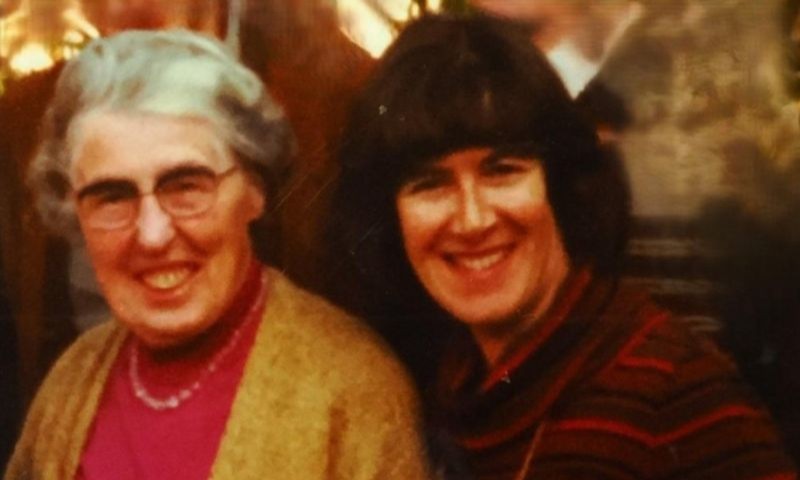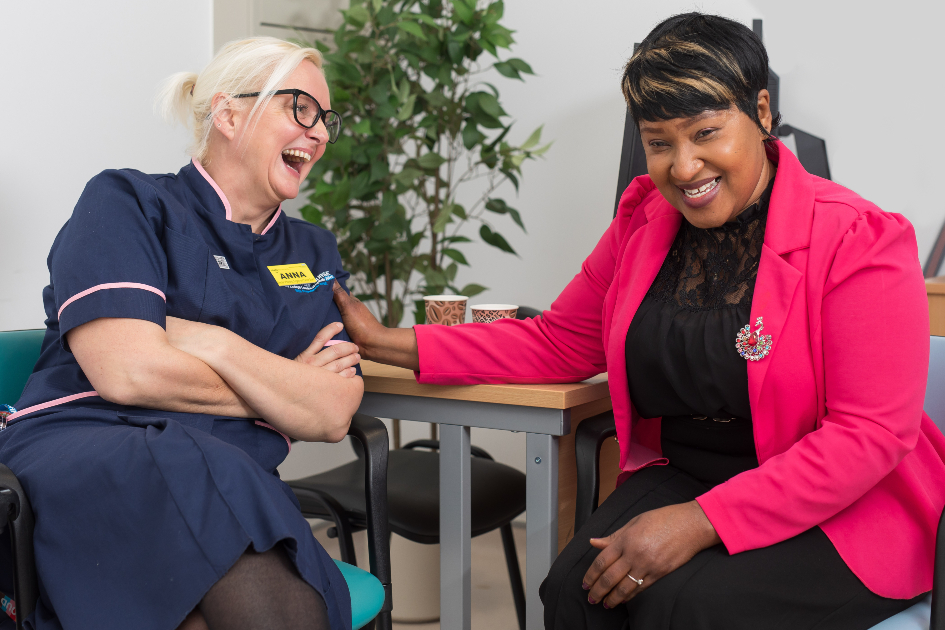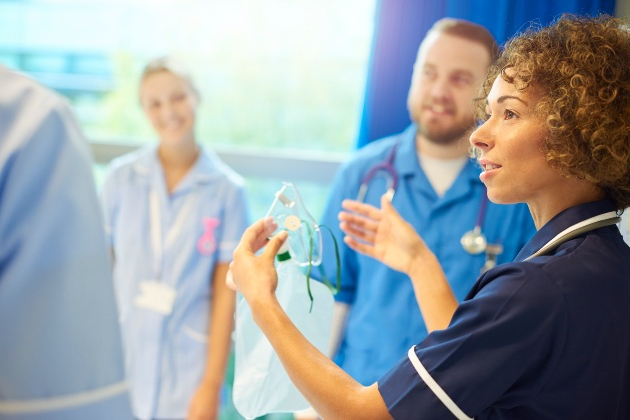Looking back
Picture the early 1970s and what comes to mind? Flares? Disco? Huge black and white TVs?
For one group of former nurses, it brings back memories of travelling thousands of miles from their homes and families to embark on a nursing career in the UK.
RCN member Maria Walker took a trip back in time recently when she met up with fellow Filipino colleagues at their former nurses’ home residence. She was still living at home in the Philippines before she came to the UK aged just 18 in 1971. She takes up her story...
'Doing what I was told'
"I’d started training as a teacher but my mother heard that student nurses were being recruited from overseas to England so she told me to do a pre-nursing course instead. My father was reluctant, but my mother thought it was a golden opportunity for me to study nursing, especially in another country.
There were nurses, midwives and doctors on both sides of my parents' family so this might have influenced my mother’s choice for me. But I’m sure she also thought it was a way to keep me away from boys too. It was hard to meet potential boyfriends or go to parties as I had to be home by 6pm. Back then, just a kiss on the cheek and holding hands would be a strong enough reason for some parents to enforce marriage.
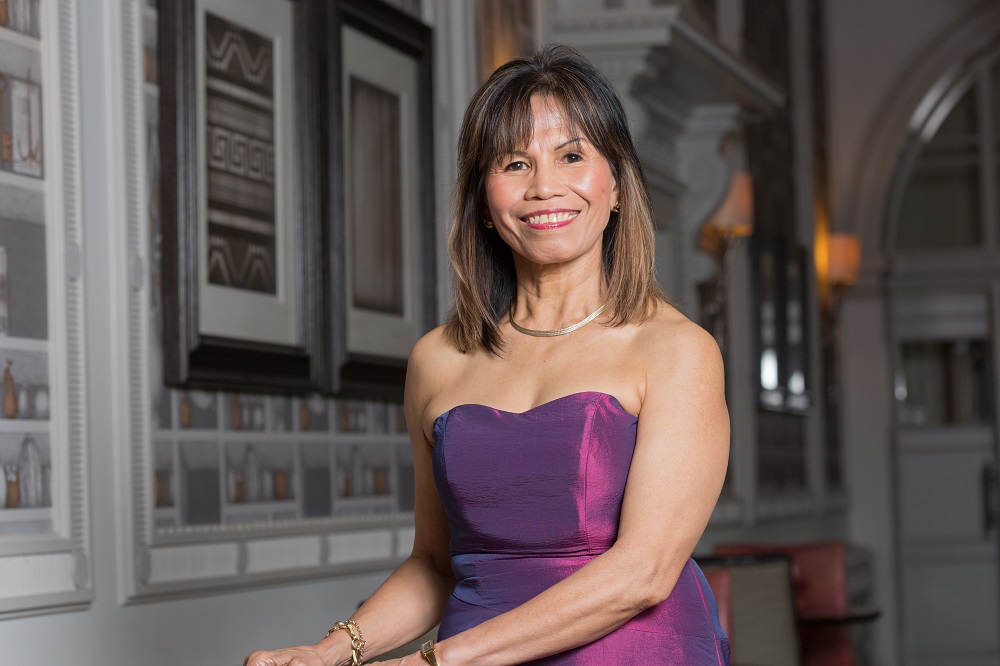 Maria at this year's reunion
Maria at this year's reunion
I had a strict upbringing, and there was no way my parents would ever have allowed me to study in big cities in the Philippines which my mother viewed as "sin cities". My mother helped me with my application for nurse training in Bath. I was used to doing as I was told so I just went along with it. Back then it wasn’t uncommon for parents, especially mothers, to decide their children's career paths.
I wasn’t excited about studying nursing in England. I was apprehensive and worried about being alone away from home. But my mother had reassured me that I could return home after I qualified."
Maria's nurses’ home life
"When I arrived in Bath I found myself living with other nurses of many other nationalities at what was then called, 'The Spa Nurses Home'. I worked
40-hour shifts every week and our strict but caring Irish warden would have a copy of my off- duty rota so she would know what I was doing every day.
Many of us shared rooms with our fellow Filipino colleagues and it was a women-only home, although there were a few older male porters who helped secure the premises. I assumed the warden had chosen older men to keep us focused on nursing rather than anything else. That assumption could have been right!
I didn’t pay for my accommodation and had free meals and even free transport to and from work in those days. Every effort was made to help us. If we were on an early shift, to make sure we didn’t miss our coach, at about 6am, the porter would wake us up by knocking on our door, opening it and switching the light on, saying: “Good morning nurse.” They said this again and again until we gave a verbal response. There was no chance of oversleeping and we definitely didn’t need an alarm clock!
Initially I was paid around £1.50 an hour which was a lot of money then and I felt quite well-off. On pay day I’d occasionally treat myself to new clothes, shoes, or handbags. We all sent presents or money to our family back home too.
Social life
On my days off, I’d occasionally join a small get together with other Filipino colleagues and we’d cook dishes from home in a small kitchen and ate in our rooms. A favourite was chicken adobo. We’d marinate chicken in soya sauce, crushed fresh garlic, vinegar and cook it slowly with added bay leaves. We’d eat this with boiled rice. I always looked forward to this taste of home even though we had our three main meals provided for us every day.
Any social gathering in the nurses' home, especially at night, was monitored by the warden and her team who made sure we stayed safe. Male visitors were instructed to remain in the reception area - under no circumstances were they ever allowed in our rooms! When the clock struck 10, our warden would politely bid them goodnight and would send us nurses to bed. It’s funny to think that when I arrived I didn’t even know about the “birds and the bees”!
We all still managed to enjoy parties and dances with university students, naval and air force officers. It’s where many of us met our future husbands. Although there were strict curfews a few of us occasionally got into our ground floor rooms through our windows which we deliberately left unlocked!
Training
I spent a lot of my training doing practical placements in hospital wards. There was a lot less theory in those days and the equipment was a lot less sophisticated than it is now. These were the days before safety legislation and a lot of our tasks were physically challenging – we didn’t have specialist lifting equipment so we manually moved and turned patients in bed.
I was really proud of my spotless, well-starched uniform, complete with belt and hat. For infection control reasons we weren’t allowed to wear our uniform in public places so we wore our cape over it and changed after work. Looking back now I realise how privileged I was to have the opportunities I had, yet be so protected. I probably didn’t appreciate that at the time! Back then all I wanted was a better life in the UK and to learn a valued profession."
Maria's career
After studying in Bath for two years Maria qualified as a State Enrolled Nurse (SEN). She trained for her Registered General Nurse (RGN) qualification in St Marys, Paddington, London a few years later then worked all over the UK. She studied midwifery, health visiting, practice nursing, nursing law, palliative care and dementia and worked for the NHS for 30 years, ending up in a senior management position in the community.
Melda's memories: ‘What does ‘spend a penny’ mean?’
Melda Castro was 22 when she made the journey from Negros, the fourth largest island of the Philippines, to Bath.
"My mother didn’t want me to leave home but I persuaded her to let me come. I chose St Martins in Bath because it had “Saint” in the title and I’m Catholic.
I was lucky enough to work with colleagues of many different nationalities including nurses from Jamaica, Trinidad and Malaysia.
New Year’s Eve wasn’t really celebrated in England in those days but it was very big in the Philippines. So we had a party and taught the others our special dances and had a national costumes parade. It was great fun.
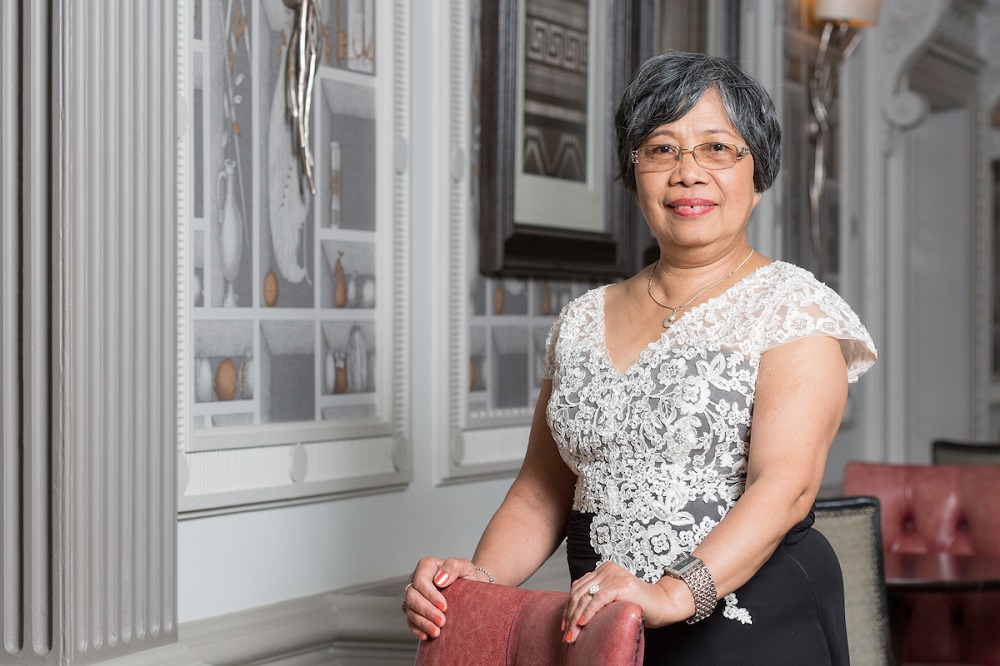
English is my second language and I’d learnt American English so that brought its own challenges, especially in our practical training. I had no idea that 'spend a penny' meant wanting to have a wee. Thankfully I had a very supportive ward sister.
The matrons were very strict spinsters but I went to a convent school so I was used to that. I remember a group of us going to London – the warden checked we were all dressed appropriately for the weather!
I loved Bath. It was a beautiful city with friendly people."
After completing her training, Melda worked on a surgical ward. She completed her conversion course in 1991 and later became a ward sister and specialist nurse in nutrition.
Leah's story: 'Smoke coming out of people's mouths'
Leah Grewal travelled to the UK with another young woman coming to study nursing. She was just 19 and had to travel from the Mid West Philippines.
"I wanted to be a nurse but my parents had eight children and at one time five of us were at university which was very expensive.
I’d completed two years out of the five-year degree in nursing at home before I came to England so had the background but not the practical experience when I arrived in Bath on a January evening. It seemed like a magical place full of lights but given the time of year it was very cold and everyone seemed to be dressed in dark clothes. It was strange seeing what looked like smoke coming out of peoples’ mouths.
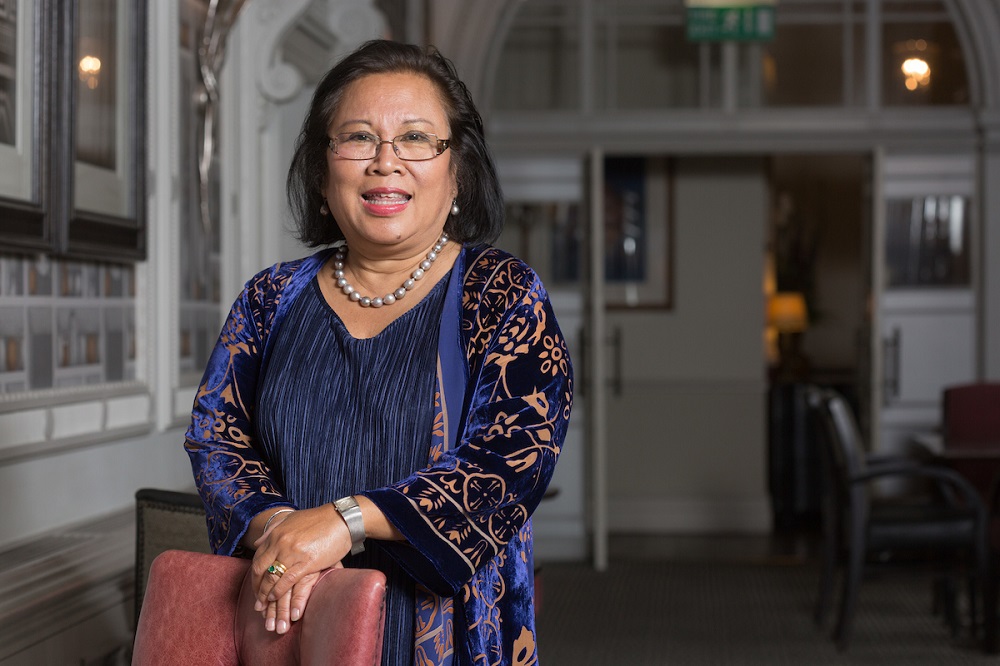
But the people in Bath were very kind to us. One patient’s wife treated us to high tea in their home! The tutors were really nice too and the nursing sisters looked after us because we were so young and far away from home.”
After completing her training Leah worked in cardiology and general medicine for more than 20 years.
Aida remembers: ‘Everything was a culture shock’
Aida Condez already had two degrees when she arrived in Bath to study nursing aged 23.
“Arriving in Bath was quite a culture shock. Everything was different and I couldn’t understand most people’s accents. The first meal I had was a ham sandwich and it was so dry. I was used to it being cooked in pineapple at home – I thought they’d given me raw meat! I was pining for rice all the time – it goes with our food and it became representative of home.
I actually got really homesick, tears were flowing all the time. Back then the only way to stay in touch was really through rare phone calls on public telephones or by letter. I was terrified but everything was so exciting and different. I Ioved the UK seasonal changes and wrote to my family about them, sending pressed autumn leaves to my brothers and sisters.
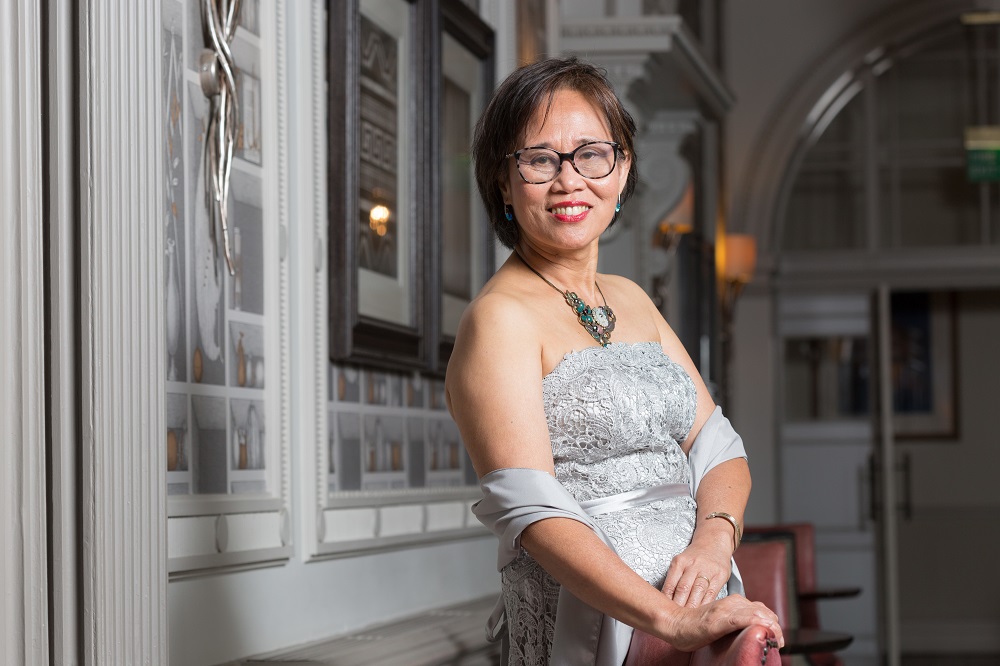
In the end I really enjoyed the training and in fact finished top of the class. I thought I’d only stay for a few years but I kept wanting more. I never exhausted what the UK could offer me."
Aida worked as an SEN for two years before studying for a degree in microbiology in Cardiff. From 1984 until 2015 she worked as a part-time nurse in a haemophilia centre but continued her research work until 2013.
Back together
Earlier this year Maria used Facebook to look up her former colleagues and organise a very special nursing reunion.
Nearly half a decade on, 14 former colleagues who made the long trip back in the 70s, revisited their old stamping ground. They met in the Macdonald Bath Spa building – the very place where they trained and socialised all those years ago.
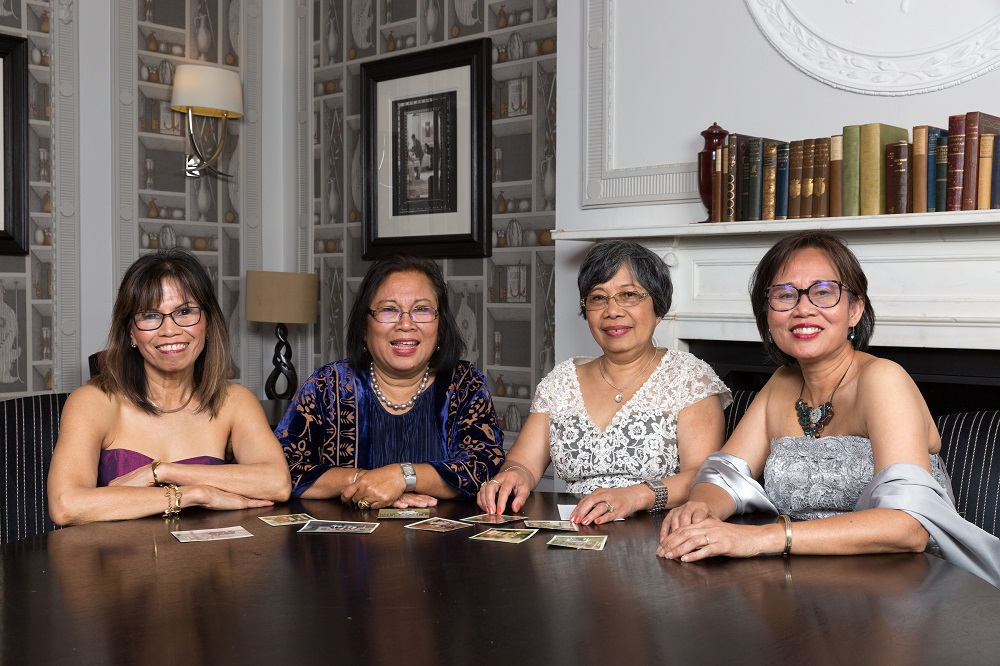
These trailblazers were young women when they travelled to Bath from the Philippines to become pupil nurses. Now, with a wealth of experience behind them, they had an opportunity to reminisce, look at old photographs, and talk about their lives and the impressive nursing careers they’ve had.
“We did recognise each other after so many years and we had a good laugh and an enjoyable evening,” said Maria.
Where it all happened
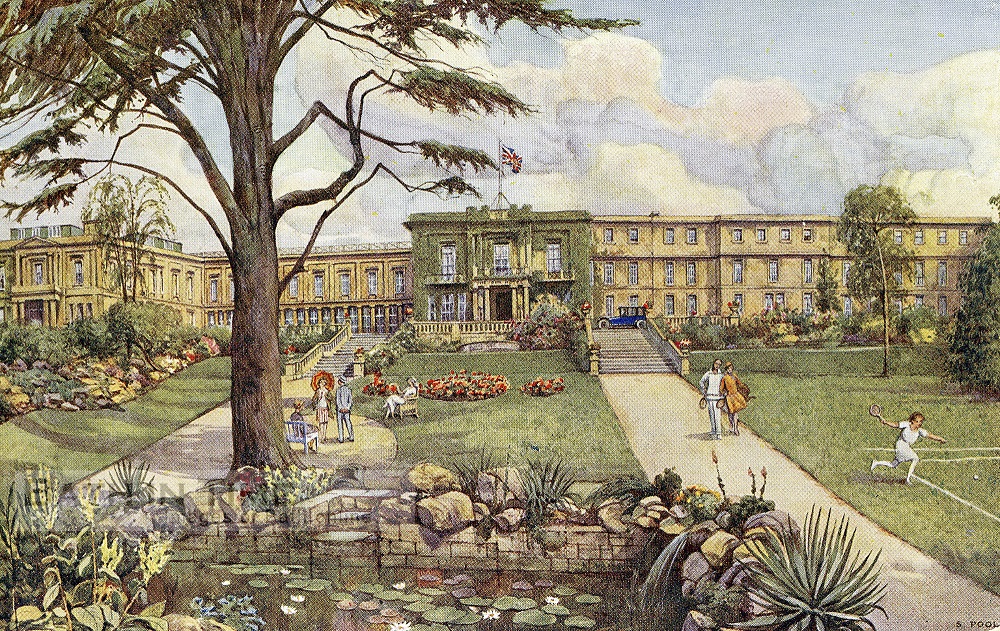
The Spa Nurses Home was originally built as a private residence for General Augustus Andrews who lived there between 1836 and 1858. It remained in private ownership until 1879 when it became Bath College – a small public boys' school.
By 1915 it became a hotel but in 1939 it was commandeered for Admiralty use during World War Two. In 1948 the building once again was used as a hotel until it was sold to the South Western Regional Hospital Board to become the Bath Spa Nurses Home in 1950. It remained a nurses’ home for 35 years but is now once again a luxurious hotel.
We want to hear from you
Do you have a unique historical nursing story to tell? The RCN wants to hear from you. Get in touch at rcn.library@rcn.org.uk
Find out about the RCN immigration advice service.


